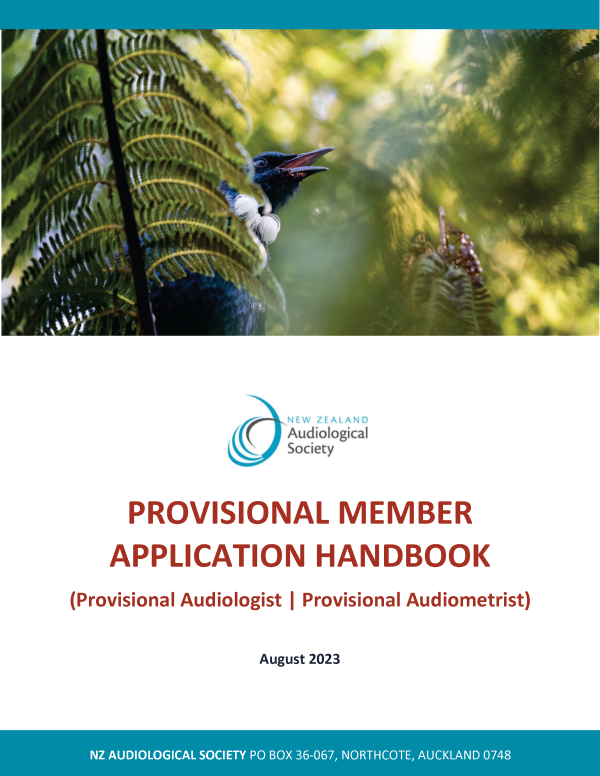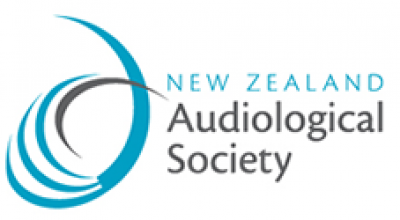Becoming an Audiologist Member
You can become an Audiologist member of the NZAS as a NZ graduate with a Masters Degree in Audiology, or as a graduate from overseas with a degree or degrees that are established to be equivalent to the NZ Masters degree by the NZAS Overseas Candidate Review Panel.
There are differing pathways of gaining Audiologist membership which are dependent on the qualification criteria outlined in the following information.
All eligible applicants will be accepted as Provisional members and will need to complete the NZAS Certificate of Clinical Competence (CCC).
Once the CCC has been successfully obtained, an audiologist can become a Member of the New Zealand Audiological Society with full voting rights and can use the honorific ‘Audiologist MNZAS’.
To maintain membership with NZAS, an audiologist member must accrue the required Continuing Education Points (CEP) and hold an Annual Practising Certificate (APC). More information regarding the CEP policy can be found on the NZAS website.
Provisional Membership Application Handbook
It is highly recommended that you download and read through the handbook BEFORE completing an application.

New Zealand Graduates
A graduate of a NZAS-endorsed Masters of Audiology programme in New Zealand should complete the Application for Provisional Membership – NZ Graduate. This application requires documentation supporting completion of all course requirements – this may include signed confirmation by the Audiology Programme Head of Department or a certified copy of the degree.
Application for Provisional Membership - NZ Graduate >
Overseas Graduates
If an individual completed their audiology qualification outside of New Zealand, there are two pathways to become a Provisional Audiologist member of NZAS:
- Overseas Recognition Pathway, or
- Rest of World Pathway.
There is one application form for both pathways, so an applicant completes all sections relevant to them.
To apply to be a Provisional Audiologist member of NZAS, an applicant must have an audiology-related qualification which is academically equivalent to the NZAS-endorsed Masters of Audiology (MAud) programme in New Zealand.
The current criteria requires that the audiology qualification includes minimum post-graduate level study in audiology, coursework that covers similar topics to the New Zealand MAud degree, and at least 200 hours of supervised clinical practice. You will need to provide evidence in your application that confirms this, including transcripts, course descriptions (commonly found in course handbooks), and evidence of clinical hours.
All overseas-qualified applicants must have their qualifications reviewed by the New Zealand Qualifications Authority to confirm the level of qualification (ie. masters, diploma, etc), unless the qualification is listed below as having previously been assessed. If you have any questions, please contact admin@audiology.org.nz prior to proceeding.
All overseas-qualified applicants, irrespective of the NZQA assessment, must have their qualification verified to ensure that the individual completed the qualification stated. This verification is undertaken by DoubleCheck NZ.
After the degree has been validated and verified, the applicant is required to provide evidence, through a mapping matrix within the application form, that the degree is equivalent in its content to a MAud from New Zealand.
An applicant who has completed their audiology qualification in a country other than New Zealand, Australia, Canada or the USA, must provide evidence that they have met one of the following criteria:
- International English Language Testing System (IELTS) Academic with a score greater than or equal to 7.5 in Speaking, 7.5 in Listening, 7.0 in Writing, 7.0 in Reading and an average score of 7.5 or higher.
- TOEFL (iBT) with a score greater than or equal to 26 in Speaking, 26 in Listening, 24 in Writing and 22 in Reading
-
Completion of an Accredited Audiology qualification where the medium of instruction was English, have a current CCC or equivalent from AND have practiced clinically post-qualification in Australia, Canada, Republic of Ireland, United Kingdom, or United States of America.
Overseas Audiologist Application Form >
International Payment Instructions >
PLEASE BE ADVISED THAT DUE TO THE HIGH NUMBER OF OVERSEAS APPLICATIONS BEING RECEIVED, CURRENT PART 1 PROCESSING TIME IS 2-3 MONTHS.
NZAS Audiometrists wanting to become Audiologists
There is a specific membership pathway for Audiometrist members who have gone on to attain a NZ Masters Degree.
This pathway applies to any NZAS Audiometrist who wishes to apply for Provisional Audiologist membership after completion of Masters of Audiology degree at the University of Canterbury or University of Auckland.
Modifications apply to supervision and assessment requirements of the Standard Pathway Audiologist CCC programme for those NZAS Audiometrist members who have recency of practice.
Please contact admin@audiology.org.nz for further details.
Audiologist CCC Process
The Certificate of Clinical Competence (CCC) is recognised by the New Zealand Audiological Society (NZAS) as the benchmark for undertaking independent clinical practice of audiology in New Zealand.
To be eligible to enrol in the CCC programme, the NZAS must first assess and approve an application for provisional audiologist membership.
There are two pathways to obtain a CCC and become a MNZAS Audiologist:
- Standard pathway (Standard):
New Zealand graduates of a NZAS endorsed Master of Audiology programme from The University of Auckland or University of Canterbury; Audiologists qualified from countries other than Australia, Canada or the United States of America who meet the qualification requirements; Audiologists qualified in Australia, Canada or the United States of America who do not hold a current Certificate of Clinical Competence or equivalent from one of these countries. - Overseas recognition pathway (Fast-Track):
Audiologists qualified in Australia, Canada or the United States of America with a qualification deemed at a minimum equivalent to the NZ Masters in Audiology (MAud) and who hold a current Certificate of Clinical Competence or equivalent from one of these countries, and who have met the requirements for entry to the recognition programme.

